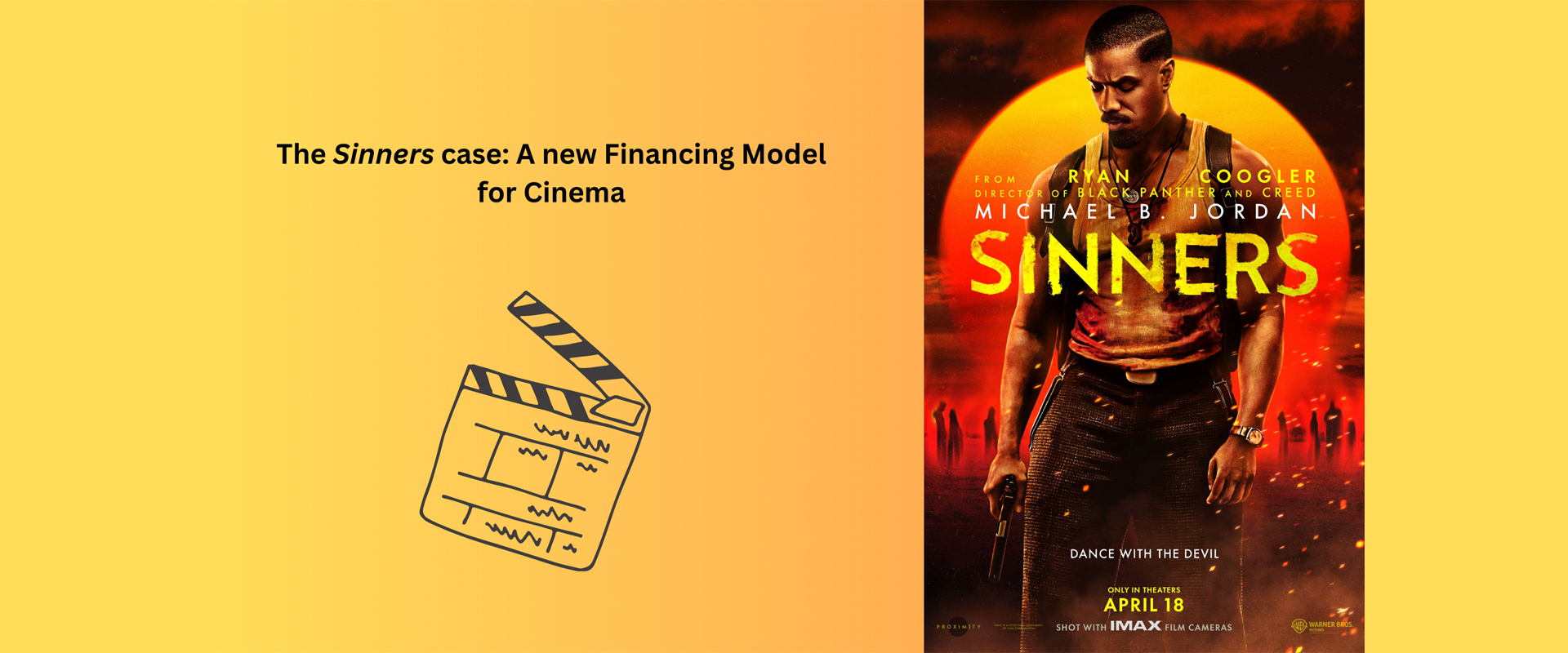The Sinners Case: A New Financing Model for Cinema
Ryan Coogler’s vampire horror Sinners is making a strong showing at the box office, but what’s drawing even greater industry attention is the groundbreaking financial deal the director struck with Warner Bros.—an agreement that challenges long-standing studio financing norms and guarantees him revenue from day one of distribution.
Let’s break it down. Sinners marks Coogler’s fifth directorial feature (following Fruitvale Station, Black Panther, and Black Panther: Wakanda Forever) and his fifth collaboration with lead actor Michael B. Jordan (Fruitvale Station, Creed, Black Panther).
The agreement between Coogler and Warner Bros. includes two particularly innovative provisions. The first concerns reversion rights: after 25 years, full ownership of the film—including any sequels, spin-offs, or derivative works—will revert to Coogler. This clause is exceedingly rare and has been granted to only a handful of high-profile filmmakers such as Quentin Tarantino, Peter Jackson, and Richard Linklater. Traditionally, studios retain perpetual rights, while filmmakers receive only a fraction of long-term earnings.
The second provision involves gross revenue participation from day one: Coogler reportedly receives 5% of gross receipts from the outset, alongside the studio. This structure deviates significantly from the legacy Hollywood model, which typically requires studios to recoup all production, marketing, and distribution costs before talent begins to share in profits.
The Rise of Independent Financiers
As Jon Gosier noted in his Variety VIP analysis, deals like the one behind Sinners may signal a broader shift in how studio-backed productions are financed. While part of the evolution is due to the negotiating power of bankable auteurs like Coogler, another major driver is the emergence of independent financiers.
One such player is Domain Entertainment, a division of Domain Capital, a private equity firm specializing in the acquisition of IP and content libraries. Although not a traditional studio, Domain co-financed Sinners, raising the question: why would a major player like Warner Bros., with extensive resources, partner with an external investment firm?
The answer lies in risk management. Studios that fully finance a film retain all profits if it becomes a hit—but also shoulder all losses if it fails. After years of over-investment in underperforming tentpoles, many studios are rethinking this approach.
While co-financing isn’t new—Warner Bros. partnered with an independent financier for Joker in 2018, and Skydance (founded in 2006 by Oracle heir David Ellison) has long co-produced with Paramount, Sony, and Amazon—what is new is the rise of filmmakers adept at structuring deals with independent capital sources to gain greater leverage in negotiations.
By securing partial financing up front, producers enter the room with a strategic advantage. If a studio wants to mitigate its financial exposure, it must engage with the financier—and by extension, with the filmmaker’s terms.
This shift likely enabled Coogler to secure such favorable deal points: he didn’t just bring creative vision and a track record of success—he brought the funding to match.
Source: Variety VIP
Share:
Ryan Coogler’s vampire horror Sinners is making a strong showing at the box office, but what’s drawing even greater industry attention is the groundbreaking financial deal the director struck with Warner Bros.—an agreement that challenges long-standing studio financing norms and guarantees him revenue from day one of distribution.
Let’s break it down. Sinners marks Coogler’s fifth directorial feature (following Fruitvale Station, Black Panther, and Black Panther: Wakanda Forever) and his fifth collaboration with lead actor Michael B. Jordan (Fruitvale Station, Creed, Black Panther).
The agreement between Coogler and Warner Bros. includes two particularly innovative provisions. The first concerns reversion rights: after 25 years, full ownership of the film—including any sequels, spin-offs, or derivative works—will revert to Coogler. This clause is exceedingly rare and has been granted to only a handful of high-profile filmmakers such as Quentin Tarantino, Peter Jackson, and Richard Linklater. Traditionally, studios retain perpetual rights, while filmmakers receive only a fraction of long-term earnings.
The second provision involves gross revenue participation from day one: Coogler reportedly receives 5% of gross receipts from the outset, alongside the studio. This structure deviates significantly from the legacy Hollywood model, which typically requires studios to recoup all production, marketing, and distribution costs before talent begins to share in profits.
The Rise of Independent Financiers
As Jon Gosier noted in his Variety VIP analysis, deals like the one behind Sinners may signal a broader shift in how studio-backed productions are financed. While part of the evolution is due to the negotiating power of bankable auteurs like Coogler, another major driver is the emergence of independent financiers.
One such player is Domain Entertainment, a division of Domain Capital, a private equity firm specializing in the acquisition of IP and content libraries. Although not a traditional studio, Domain co-financed Sinners, raising the question: why would a major player like Warner Bros., with extensive resources, partner with an external investment firm?
The answer lies in risk management. Studios that fully finance a film retain all profits if it becomes a hit—but also shoulder all losses if it fails. After years of over-investment in underperforming tentpoles, many studios are rethinking this approach.
While co-financing isn’t new—Warner Bros. partnered with an independent financier for Joker in 2018, and Skydance (founded in 2006 by Oracle heir David Ellison) has long co-produced with Paramount, Sony, and Amazon—what is new is the rise of filmmakers adept at structuring deals with independent capital sources to gain greater leverage in negotiations.
By securing partial financing up front, producers enter the room with a strategic advantage. If a studio wants to mitigate its financial exposure, it must engage with the financier—and by extension, with the filmmaker’s terms.
This shift likely enabled Coogler to secure such favorable deal points: he didn’t just bring creative vision and a track record of success—he brought the funding to match.
Source: Variety VIP








